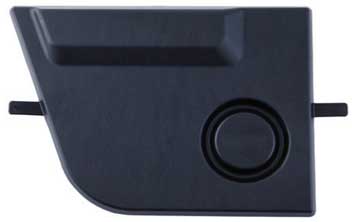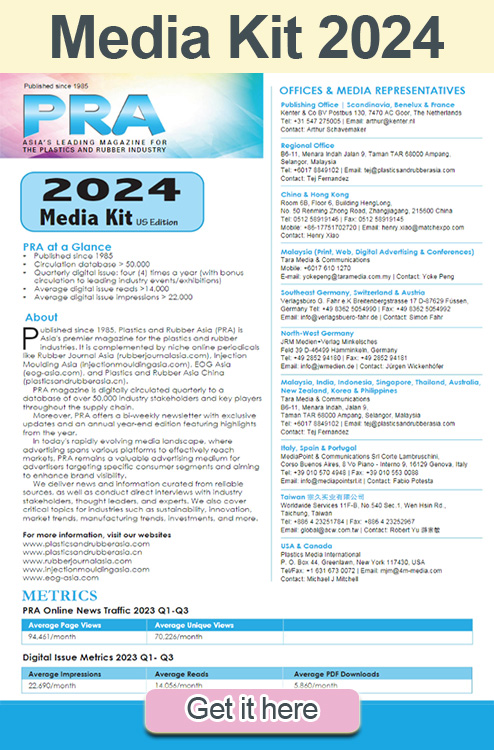Automotive Sector: Achieving sustainability-driven objectives
Improving recyclability of interior parts
Achieving a good balance between sustainability and functionality without sacrificing cost-competitiveness is a major issue for car manufacturers. To tackle this challenge, Japanese materials company Asahi Kasei says it is currently developing a tailor-designed thermoplastic styrene block copolymer (SEBS) grade for automotive interior surfaces, which require good haptics and soft touch.

Whereas conventional approaches use different materials and production technologies for skin, foam, and core layers in automotive instrument panels, door panels, armrests or centre consoles, the new SEBS material is suitable for both skin and foam layers, which can be moulded in one step by utilising a core back injection moulding process.
The connection to the polypropylene (PP)-based core layer is possible in the same or separate injection moulding step. The strong chemical bonding between all layers eliminates the need for additional adhesive layers.
Asahi Kasei says its new SEBS contributes to reducing the total number of materials, simplifying the manufacturing process, and improving the recyclability of interior components.
Mass production of recycled-content radiator grilles
For the first time, car maker Audi says it is massproducing painted radiator grilles made from a blend of PC and PET recyclates for the new Audi A3 Sportback and Audi A3 Sedan. This achievement is the result of a collaboration between Mocom, a specialist in compounding and recycling, Winning Plastics, a plastics processor, and Audi.

The project was not without its challenges and the team had to take into effect the stringent technical requirements for mechanical properties in safety-critical components and the high purity needed for the material to be reused in painted parts.
“Our objective is to systematically increase the use of recycled materials in Audi vehicles. With the A3 model update, the painted radiator grille contains a significant portion of secondary raw materials for the first time. As a key design element of Audi models, the grille must meet high standards in design, appearance, and quality, in addition to specific mechanical requirements,” explains Frank Fischer from Audi’s Materials Engineering department.
Werner Meschitz, Head of Innovations at Winning Plastics also said that suitable recyclates were not available off-theshelf, so together with its partner Mocom, the companies developed a recycled compound that partially incorporates painted scrap components from its own production.
“Standard recycling methods for scrap parts leave too many contaminants and paint residues, making it impossible to reuse the material in a new radiator grille. However, Mocom’s innovative process, particularly in paint removal, ensures the required purity of the recyclate, enabling a closed-loop recycling system,” he added.
The recycling process begins with scrap parts from production, known as post-industrial materials. In this case, these are painted radiator grilles with purely cosmetic defects, such as dust inclusions.
After the defective parts are shredded into approximately 30-mm pieces, they are processed in a hammer mill uniquely designed by Mocom. Here, the paint is removed primarily through friction, and the resulting debris is vacuumed away. The paint residue is discarded, while the de-painted PC+PET material is further processed into regranulate.
Next, during extrusion, the plastic mass undergoes fine melt filtration, where it is passed through special filters. The resulting PC+PET recyclate is then blended at a nominal 27% into the production of new radiator grilles for vehicle manufacturing. This process offers a cost-effective recycling solution with a lower carbon footprint compared to using new materials.
The firms say that the combined technologies enabled them to create a high-quality plastic compound with recycled content that meets the stringent requirements for manufacturing radiator grilles, and that the successful integration of recyclates in automotive plastic components opens up new opportunities for the entire automotive industry.
Subscribe to Get the Latest Updates from IMA Please click here
©2024 Injection Moulding Asia. All rights reserved.











